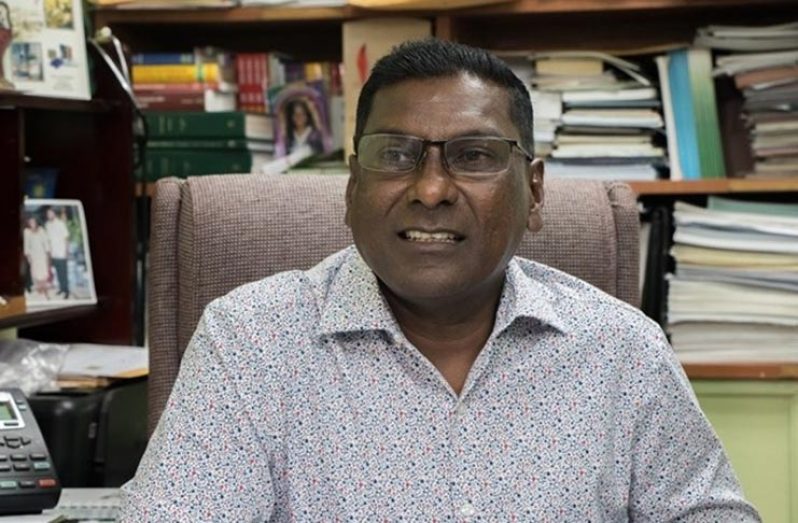CASES of the novel coronavirus (COVID-19) continue to trickle in, as the country recorded two new cases of the disease within the past 24 hours, after going two days without a new case.
The two cases were detected after health authorities tested 44 persons between Wednesday and Thursday. To date, the total number of persons tested is 1, 920 with the number of negative cases being 1,762 and 158 positive cases.
Of the total number of cases, 92 persons have recovered and 12 persons have died, but there are 55 active cases, of which 54 are in institutional isolation and one person is being treated in the COVID-19 Intensive Care Unit (ICU).
The detection of new cases prove that Guyana is not “out of the woods” when it comes to reducing the spread of COVID-19, and the need for surveillance will be most important as students return to school to prepare for the National Grade Six Assessment (NGSA). Children will be heading back to school from June 15, 2020 to prepare themselves for the NGSA which will be done on July 1 and 2, 2020.
“Parents, I wish to remind you that you must have the conversation with your young ones about the health guidelines that must be followed during the time they will be at school so that they can be safe from contracting the coronavirus disease,” said Chief Medical Officer (CMO), Dr. Shamdeo Persaud, during a virtual COVID-19 update, on Thursday.
He advised parents to show their children, step by step, how to put on the mask and to wear it appropriately. Parents must also remind their children not to touch the front of the mask, and to use the straps to remove it when taking a snack.
Dr. Persaud said children should take a plastic or a zip lock bag and place the mask there until they are finished eating. Parents also need to remind their children to wash their hands properly, and as soon as they have finished, to put on the mask again.
“Parents, you can give them an extra mask, just in case the one they are wearing falls or becomes soiled. Remind them to wash hands after using the restroom and not to play around that area but to return immediately to their classroom,” the CMO advised.
Parents can also provide children with their own hand sanitiser and alcohol-based wipes, which they can use as often as possible.
“Most importantly, let them understand that things are going to be different at school because of the virus; you have to give them the mental support because you know how challenging preparing for the Grade Six Assessment can be,” said Dr. Persaud.
Health authorities here continue to work towards strengthening the healthcare system to respond to COVID-19 on a long-term basis. The potential and existing activities are part of a plan to have a comprehensive COVID-19 health network, whereby patients across the country’s 10 administrative regions will be able to access these services.
Region Four (Demerara-Mahaica) remains the epicentre of the disease, and there are a number of communities outside of Georgetown which have recorded cases.
Among communities on the East Coast Demerara (ECD) where cases have been recorded are: Atlantic Gardens, Friendship, Golden Grove, Good Hope, Lusignan, Plaisance, and Strathspey. Among communities on the East Bank Demerara (EBD) where there were cases are: Diamond, Grove, Land of Canaan, Providence, and Timehri. Health authorities are also placing emphasis on the four hinterland regions, especially now that three of them have recorded cases of COVID-19.
NEED FOR SURVEILLANCE
The need for surveillance in those regions is also important, because Guyana’s South American neighbour, Brazil, is now rated as the COVID-19 epicentre of the Americas.
“We continue to plead with the residents of Regions One, Six, Seven, Eight and Nine to remain on high alert, recognising that our neighbours, Brazil, Venezuela and Suriname, are reporting new cases,” said Deputy Chief Medical Officer, Dr. Karen Boyle, in her update last Friday.
“Residents of Region Seven, with the new cases in Venezuela, and the upsurge in your region, your vulnerability is increased. We are calling on the Toshaos and other authorities to ensure that residents do not cross borders, and that persons from those other countries are not entering your community. Community members must report any migrant entering your community and anyone who has signs and symptoms, and immediately bring this to the attention of the health authorities,” Dr. Boyle advised.
As is evident, COVID-19 remains a serious issue, not just here in Guyana, but globally as well; and, according to global statistics, there are 7.1 million cases of COVID-19, with over 408,000 deaths. And, with no approved treatment or cure, there is no assurance that persons will survive after contracting the disease. In the absence of approved medications, governments and authorities across the world have employed a number of preventive measures to contain the spread of the disease.




.jpg)










